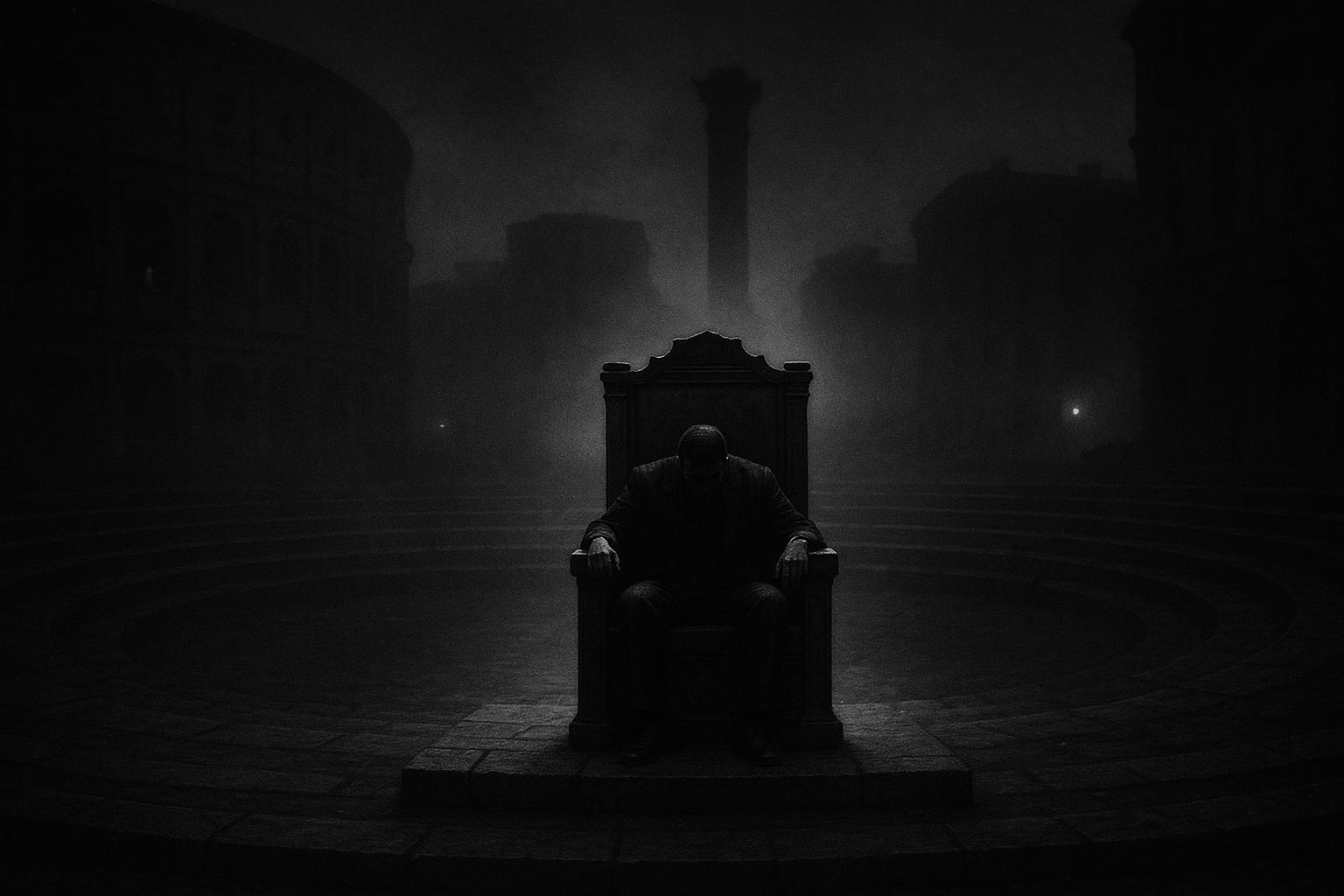Tangle Theatre’s recent production of Shakespeare’s Julius Caesar at the Omnibus Theatre in Clapham offers a bold and innovative reinterpretation, seeking to embed African and Caribbean artistic sensibilities into one of the Bard’s most politically charged tragedies. The company, whose mission is to champion African and Caribbean arts and nurture related talents, delivers an abridged version of the play, adapted and directed by Anna Coombs. The performance condenses the narrative into a brisk, under-two-hour presentation featuring just five actors who assume all the roles, a considerable challenge given the original text’s 34 named characters.
The adaptation aims to weave African-inspired storytelling into the fabric of ancient Rome, a bold cultural juxtaposition that is evident most dramatically through the character of the Soothsayer. Portrayed by Yaw Osafo-Kantanka, the Soothsayer is reimagined as an African healer, presiding over the drama with ritual drumming, dance, and untranslated chants that add a powerful, atmospheric layer to the production. This role symbolises a fusion of prophecy and cultural heritage, while also connecting the timeless themes of conspiracy, assassination, and tyranny to broader historical and contemporary contexts. The Soothsayer’s presence culminates in a compelling call-and-response moment during Mark Antony’s oration, inviting the audience to engage directly with the play’s depiction of mob rule through a culturally resonant experience.
Despite these strengths, the production does not fully commit visually to its African theme. The actors’ costumes, only faintly reminiscent of Roman togas, lack the vividness and impact that could have fully immersed the audience in the intended cultural dialogue. The abstract set design, featuring three concentric circles of light, offers an intriguing but minimalistic backdrop that supports the mood but falls short of creating a strong contextual framework for the adaptation’s aims.
Performance quality varied across the cast. Samya De Meo excelled in multiple roles including Cassius, Portia, and Calpurnia, delivering performances marked by clear, resonant diction and emotional focus. Remiel Faral’s Brutus showed significant growth over the course of the play, improving markedly after a tentative beginning. Meanwhile, Samater Ahmed, stepping into the role of Mark Antony at short notice, handled the challenge admirably, particularly in Antony’s famed funeral oration which is given nuanced treatment. Conversely, Roland Royal III’s portrayal of Caesar was less effective; his articulation suffered, and his unconventional southern American accent felt incongruous within the setting of ancient Rome.
The production grapples with the inherent challenge of telling such a dense political story in a truncated format. Some narrative elements feel rushed, especially in the first half, potentially confusing those less familiar with the source material. Nonetheless, as the play progresses, the pacing sharpens, and the second half delivers stronger dramatic tension and engagement.
Historically, Julius Caesar has been a versatile vehicle for political commentary. Orson Welles famously staged a production with overt parallels to Fascist Italy and Nazi Germany, while the Royal Shakespeare Company’s 2012 all-Black cast set their version in post-independence Africa, underscoring the play’s enduring capacity to reflect contemporary concerns about power, loyalty, and governance. Tangle Theatre’s attempt to continue this tradition, while not flawless, represents a meaningful contribution to the ongoing reinterpretation of Shakespeare for diverse audiences.
The production benefits from John Pfumojena’s live original music, which, alongside choreographer Bawren Tavaziva’s ritual dance elements, reinforces the African storytelling framework. The careful editing by Anna Coombs helps maintain a brisk tempo, a necessary adaptation to accommodate the limited cast and short running time while preserving the core political intrigue and emotional complexity.
Audience reception appears mixed; some sections responded enthusiastically, particularly in the more gripping latter half, while others were more reserved. Overall, while this iteration of Julius Caesar at the Omnibus Theatre may not fully realise its ambitious vision, it nonetheless stands as a bold experiment that offers vivid moments and fresh cultural perspectives worthy of appreciation.
Julius Caesar runs at the Omnibus Theatre until November 15th as part of Tangle Theatre’s touring programme, supported by Mayflower Studios.
📌 Reference Map:
- Paragraph 1 – [1] (All That Dazzles), [2], [3], [4], [5] (Omnibus Theatre, Pound Arts, Artsreach, Tangle Theatre)
- Paragraph 2 – [1] (All That Dazzles)
- Paragraph 3 – [1] (All That Dazzles)
- Paragraph 4 – [1] (All That Dazzles)
- Paragraph 5 – [1] (All That Dazzles)
- Paragraph 6 – [1] (All That Dazzles)
- Paragraph 7 – [1] (All That Dazzles), [6] (Southern Arts Reviews)
- Paragraph 8 – [1] (All That Dazzles)
- Paragraph 9 – [1] (All That Dazzles), [6] (Southern Arts Reviews)
- Paragraph 10 – [1] (All That Dazzles), [2], [3], [4], [5] (Omnibus Theatre, Pound Arts, Artsreach, Tangle Theatre)
Source: Noah Wire Services
